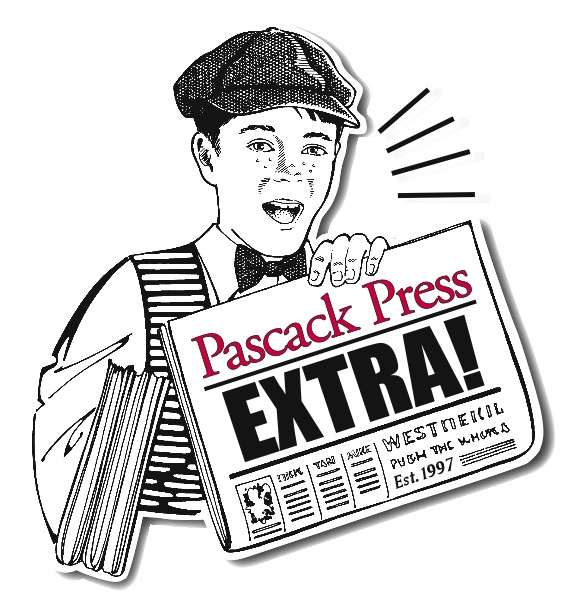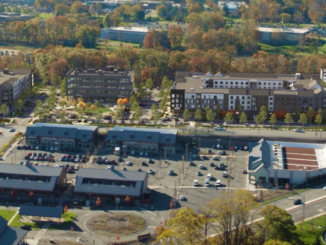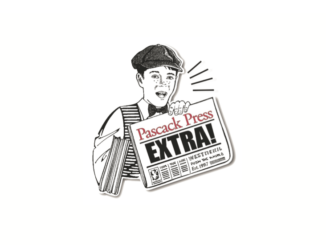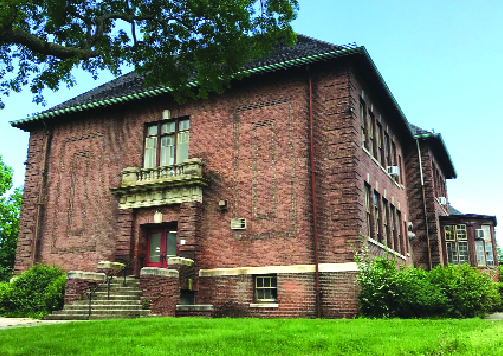
BY MICHAEL OLOHAN
OF NORTHERN VALLEY PRESS
ENGLEWOOD, N.J.—Only eight years ago, a City Council-sponsored study determined that Liberty School—which at least three local organizations are now eyeing as a potential community center site—should be repurposed as a performing arts high school or a combination arts and community center, with construction costs estimated between $9 million to $14 million.
On Dec. 18, City Council officials discussed in closed session whether to continue a citywide discussion on a future community center.
Whether the city will move forward seeking input on a community center was not certain, but a city-financed study in 2010 concluded then that the time was right.
‘Certainly feasible’
“A community center, or performing arts high school, whether it is managed by bergenPAC, or some other organization, is certainly feasible from an architectural or planning viewpoint. The economics of this reuse option is not clear at this time since no resources of public or private funding have been identified,” concluded the September 2010 report.
The study repeated several times that “bergenPAC has expressed interest” in pursuing a combined performing arts high school/community center at Liberty School and presented two final options for mayor and council consideration.
Option one was to leave Liberty School as-is and re-explore its residential reuse potential when market conditions improve. Option two was to “pursue some variation” of the performing arts high school/community center concept by initiating discussions with bergenPAC.
However, the report later discounts development in favor of reusing the historic structure originally built in 1901.
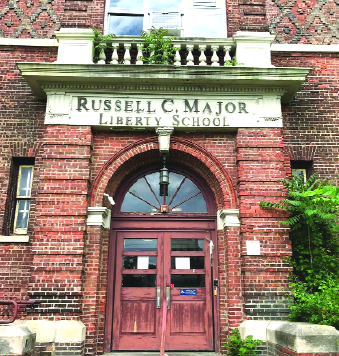
Then estimates were $9.5 million for renovations to Liberty School if its two wings, added in 1913 and 1927, were demolished and the original building improved. The $13.7 million estimate was based on renovating the existing Liberty School, including both wings.
Both estimates were for converting Liberty School to a “performing arts school or other community use,” notes the report.
Residential development?
The report also lists seven options for residential development, though it repeats in several places a lack of community support for such an option, based on public input and interviews with stakeholders.
Now in the last half of 2018, at least three local organizations including nonprofit Project Liberty, Metro Community Church and Shiloh A.M.E. Zion Church, have been conducting separate public outreach efforts hoping to crystallize public sentiment and support to repurpose Liberty School into some type of community center or combined religious, educational and community center.
City Council involved
On Nov. 19, the City Council sponsored its first town hall forum to seek public input on whether to move forward on the possibility for a community center, its purposes, and where it might be located.
Council President Wayne Hamer said Dec. 4 that on Dec. 18 the council would discuss a report prepared by consultant Joyce Dudley of Dudley Hamilton Associates, Englewood, who facilitated parts of Nov. 19’s town hall, to decide whether to retain Dudley and move forward with efforts to create consensus on a community center concept.
Both church efforts are in early stages while Project Liberty has enlisted architect and planning professionals to assist in developing design alternatives as well as to seek public input citywide—critical in a diverse city broken into four wards, and with numerous competing interests.
Strong bergenPAC interest
Back in 2010, the 100-page study indicated the strong interest of Englewood’s Bergen Performing Arts Center, or bergenPAC, to acquire the building and develop a performing arts high school there and include “after 3 p.m.” community-based programming.
The study, officially called “an adaptive reuse study,” urged the city to start talking with bergenPAC to explore such options and due to 2010’s down financial market, did not recommend the school’s selling or demolition.
In another section, the report suggested possibly building an expanded John T. Wright Ice Arena that would include a sports-oriented community center in Mackay Park.
The study, estimated to cost $34,000, was prepared by Phillips, Preiss, Grygiel, LLC, Hoboken and Fradkin & McAlpin Associates LLP, New York City.
In its final analyses, the report discounts converting the Wright Arena into a combined community center due to high costs but holds out the possibility of a community center at Liberty School.
Mayor Huttle’s support
Mayor Frank Huttle III, who is being replaced by Mayor-elect Michael Wildes in 2019, was mayor in 2010 when the last full study on turning Liberty School into a community center was completed.
While Huttle reportedly was a major supporter for bergenPAC’s efforts to repurpose Liberty School, the council did not pursue negotiations for a performing arts high school or related community center, according to several “stakeholders” interviewed by the report’s authors in 2010 and recently by Northern Valley Press.
The 2010 report interviewed 14 individuals and bergenPAC officials as “stakeholders” to help identify issues and “potential reuses” of Liberty School. The group identified 22 issues deserving consideration and eight potential reuses for Liberty School, although the report does not appear to rank or rate the issues.
Community center issues identified
Issues identified were all-encompassing, including: unifying the city’s diverse racial and socioeconomic classes; drawing high disposable income city-dwellers downtown; financial concerns and long-term best interests of the city to recouping the $6.5 million cost of school acquisition; significant maintenance costs; an outdated physical structure; creating a space to keep kids out of trouble when not in school; and integrating the site with the city’s history.
Eight “potential reuses” identified were to the point: a performing arts high school with bergenPAC, hotel, nature center, library, cultural center, residential apartments, day care and office space.
The report notes about 100 residents turned out in April 2010 for a public input session with 20 comments focused on future Liberty School uses, about half citing a future high school or community center use.
Other comments noted possible development impacts in a residential neighborhood, consideration of revenue-generating uses, and possible senior housing
A ‘unified’ city effort
Representatives from Project Liberty and Metro Community Baptist Church both said that their efforts are based on a citywide effort to get input from all four wards as they develop plans for a community center. And both efforts said outreach was put on hold lately as they waited to see what the City Council would do following the Nov. 19 town hall meeting.
“The city has stepped into it officially with its ‘town hall’ meeting,” said Michael Shannon, president of Northern New Jersey Community Foundation’s Project Liberty efforts to repurpose Liberty School.
“You cannot have a community center if you do not have a community,” noted Shannon, echoing a common theme at recent public forums.
Shannon said “unifying the city” by bringing its disparate racial, ethnic, religious and socioeconomic groups together to discuss a community center is critical to any future city involvement and financing.
“I’m encouraged right now that we may be headed in the right direction,” he said of efforts to engage all wards in a community center dialogue.
Rev. Sanita Ponton of Metro Community Church agreed that a unified outreach approach was needed and that any facility “needs to be centrally located and close to the people who are going to be using it. The city has to make that commitment,” she said.
Outreach to ‘dissenters’
Ponton said outreach efforts need to include “the dissenters” or residents opposed to a community center concept, to better understand and include their points of view.
At Dec. 4’s council meeting, resident Amy Bulluck, who pressed Hamer for months to hold a community center meeting, criticized council and school board members for a “systemic disconnect” between community needs and government actions.
She called for “conversation and compromise” among all council members and school trustees, and urged anyone not willing to speak to each other to solve issues to “step down.”
Bulluck called the Nov. 19 city town hall “disappointing” but noted the comments showed an apparent consensus for a community center.
An area for ‘redevelopment’
In early 2018, the City Council accepted a T&M Associates study that declared the 2.25-acre city-owned Liberty School site as “an area in need of redevelopment” based on two criteria.
The two criteria cited were obsolete layout and design and “smart growth” redevelopment, defined as “an approach to planning that directs new growth to locations where infrastructure and services are available, limits sprawl development, protects the environment and enhances and rebuilds existing communities.”
An existing city contract approved in 2017 calls for T&M to also prepare a redevelopment plan for $18,000, following its $10,000 study of whether to declare the Liberty School site as an area in need of redevelopment.
No City Council action has yet occurred on whether T&M should move forward on a redevelopment plan, although resident Bulluck suggested recently that members use the contract to explore Liberty School’s future as a community center.
As discussions continue on Liberty School as a possible community center, other residents have suggested more options for redevelopment or repurposing be investigated and sources of financing identified.
Year-long discussion
Back in January 2018, Hamer said he would recommend “a full analysis” of the site, including engineering, plumbing and electrical systems “because we don’t want to get any surprises further down the road.”
Hamer said then it “doesn’t sound attractive” to consider the school for apartments but following “a full discussion and determination of what can happen at this site…the (redevelopment) designation allows us to come up with a myriad of choices.”
Asked then about a future community or arts and cultural center use as residents have advocated, Hamer said “all of those things make sense to me.”
He said the council may likely issue a request for proposals, or RFP, for the school within a few months, but that was not done.
The T&M redevelopment study includes reports from the city’s professionals including fire department and code enforcement officials detailing building, electrical, fire and plumbing code violations and upgrades needed.
No upgrade cost estimates were provided in the report.

